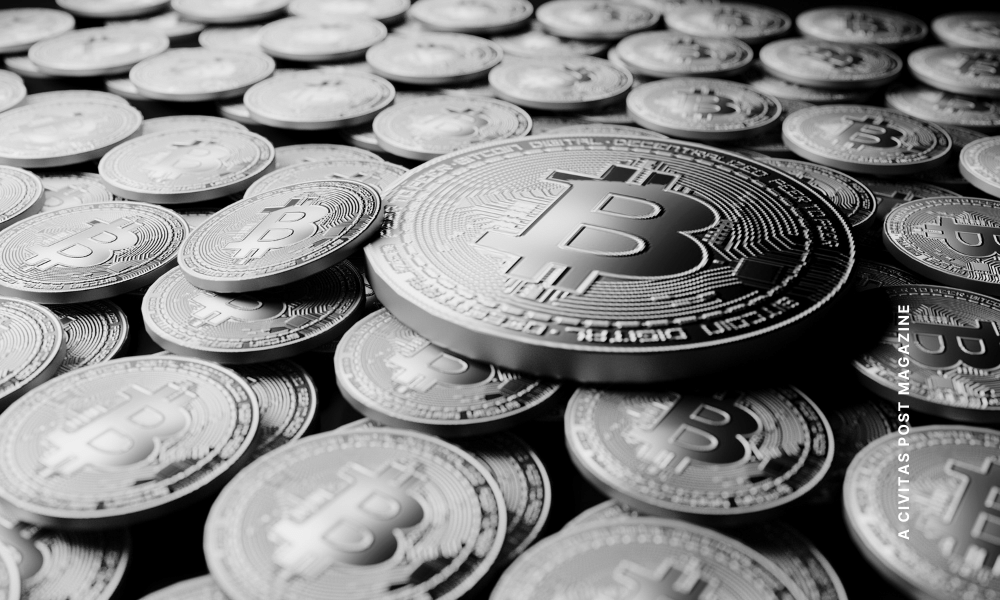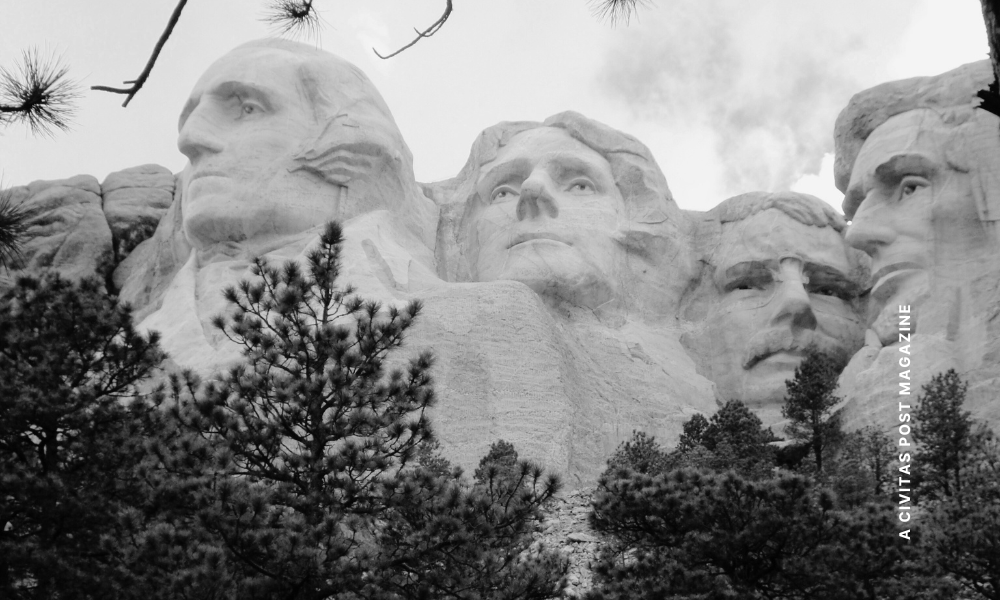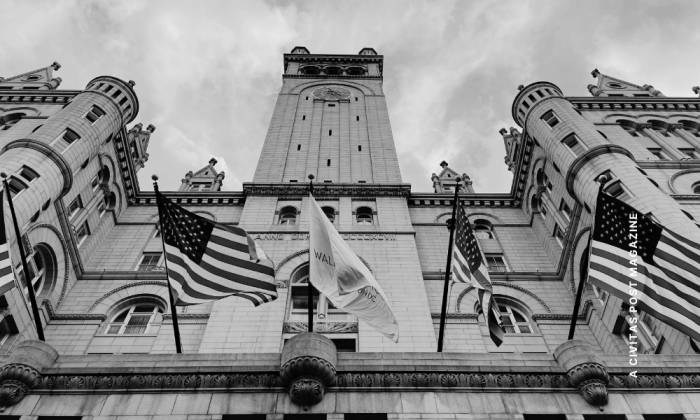UHNWIs demand for Bitcoin has been growing so we discussed this with Andrew Howard, the Chief Business Development Officer of Bitcoin Reserve on The Golden Quarter Show.
Some of the key takeaways from our conversation with Mr. Andrew Howard were:
- How the economic crisis and pandemic have highlighted the failures of central banking. How bitcoin fits into the equation.
- Why it doesn’t make sense for governments to ban cryptocurrencies and how they should instead embrace the future.
- Why bitcoin is a superior cryptocurrency to the rest and why it is here to stay.
Bitcoin Reserve serve high net worth individuals and family offices who wish to invest in bitcoin.
Bitcoin, Family Offices, Wealth
Lorena Jimenez: We would love to get a bit more of your insight on bitcoin and its correlation and links to family offices, wealth managers, and high net worth individuals.
Before we get started, perhaps if you give us some more information on Bitcoin Reserve, and what it is you do.
Andrew Howard: Yes, I am the CBDO, Chief Business Development Officer of Bitcoin Reserve and essentially what we do is we help high net worth individuals, family offices and companies buy or sell very large amounts in bitcoin.
I would say the biggest difference between Bitcoin Reserve versus another company that you can buy bitcoin from, is the fact that we specifically cater to the high-net-worth sector.
We guide them through the process.
Basically, we want our clients to feel very, very comfortable investing in bitcoin because oftentimes, it’s very intimidating for a new investor to get involved with bitcoin. We want to support them with a white glove approach to getting involved.
Read more: Malta’s Crypto-asset Regulation positioning it as ‘Blockchain Island’
Bitcoin Reserve’s offering to UHNWIs
Lorena Jimenez: What are the minimum amounts that they’re required to be investing with you? As UHNWIs demand for bitcoin rises are the majority of your clients European or from other jurisdictions?
Andrew Howard: Our minimum is 50,000 euros or any other major currency equivalent to that amount.
Yes, primarily our client focus is on Europe. We have, countries outside of Europe that we can work with, as well, many countries outside of Europe, but really any country in the European region is what we really focus on.
Lorena Jimenez: Bitcoin is all the rage at the moment. It’s a lot more mainstream and in the public domain. From your clients, your high-net-worth individuals – how have you noticed their appetite for cryptocurrency, changing in recent times?
Andrew Howard: I think the last year has been a very big eye opener for basically the failures of central banking.
I’ve seen a lot more interest in bitcoin as a result of that, I can tell you, for the US government it’s somewhere around 25% to 30% of all US dollars in circulation were created in the year 2020.
And that’s the world reserve currency.
Family offices are concerned about inflation and I think right now is a very good time for bitcoin given that it has a finite supply of 21 million, and all fiat currencies on the planet right now are getting very inflated.
I’ve seen increased interest from family offices in this sector.
And I think that’s also as a result of the heavy amount of corporate adoption in bitcoin too. The amount of corporations that have been buying bitcoin and putting it in their treasury reserve assets because of inflation.
Bitcoin and UHNWIs risk appetite
Lorena Jimenez: With the pandemic and the increase in money being printed as a result, investors have considered going into this asset class, do they feel the current situation has in a way mitigated the risk of going into crypto currencies?
Andrew Howard: I think, I don’t know if it mitigated the risk, because personally, I don’t think bitcoin is that much of a risky investment.
I understand family offices want to preserve their wealth, want to grow their wealth. And, bitcoin has been around for about a decade now. So- if you were to talk to me 10 years earlier and ask me if it was a risky investment, my answer might be a little bit different. But at this point, we have multibillion dollar corporations buying billions of dollars’ worth of it and holding it for the long term.
So, the idea that bitcoin could somehow go to zero, I think, at this point is absolutely preposterous.
I can go into more detail about the corporate adoption, too I just, think this is this is a very big deal – the number of corporations we’re seeing buying it this year, as a result of the lockdowns, the soaring unemployment, the large amount of money printing going on, all of these factors are contributing to bitcoin’s increase in price.
Lorena Jimenez: Once governments start coming out of this recession and there’s more of a normalization in terms of the economy and economic activity and the pandemic is (finally) behind us, how will that then impact bitcoin. Will bitcoin be less popular or less valuable?
Or will this just have been the triggering event, the platform, that pushed it to wider adoption?
Andrew Howard: I think bitcoin’s first, and immediate step is that it will replace gold’s market cap. And I don’t think governments necessarily see that as much of a threat.
I don’t think governments want to let go of their use of creating fiat currencies. But right now, I don’t see bitcoin as much of a competitor against fiat currencies, more so I see bitcoin as a competitor against the gold market.
And even the Chief Investment Officer of BlackRock, which is the largest asset manager on the planet, is saying that bitcoin is superior to gold.
Aside from that, the idea that the government should ban bitcoin and it’s just all going to go away tomorrow, if they ban it, I don’t think that’s realistic, either.
If you look at the United States, which obviously has a very large amount of financial power, we have the mayor of Miami, Florida, he’s saying that he wants it to become a crypto hub.
We have a Senator from Wyoming, Cynthia Loomis is her name. She is a Bitcoiner. She fully believes in bitcoin. Cynthia has been investing in it since 2015.
Canada already has a bitcoin ETF.
We have a public leader named Kevin McCarthy, who also advocates for bitcoin. We have politicians sitting in office right now who actually believe in this stuff.
I think if they were to ban it [they wouldn’t succeed], the governments in the past that have banned it have not succeeded.
Pakistan tried banning it and now they’re, I believe their government mines it.
Venezuela, of course, is famous for banning bitcoin a few years ago, their government stole bitcoin mining equipment and is now mining themselves.
If governments ban it their citizens miss out on a massive financial evolution, in my opinion, and if they embrace it, and create, intelligent regulation around it, which I don’t know if those two words can be used (together), I think that’s a better option for governments.
On the point of regulation. What impact will new regulation that comes into play have on bitcoin? Up until now, it wasn’t so widely adopted so it might have not been such a priority for governments.
What lies ahead for Bitcoin?
Lorena Jimenez: Initially it was just a couple of tech, advanced early adopters that were actually going ahead and investing in bitcoin, but now with wider adoption by the public, will further regulation hamper the beauty of cryptocurrencies like bitcoin?
Andrew Howard: So first, I just want to say, the notion that bitcoin is not regulated (is erroneous), bitcoin is actually regulated. If you’re a financial entity getting involved, you have to deal with regulations if you want to buy bitcoin.
Aside from that, I think if new regulations were to come down the line, I would almost compare it to Airbnb or Uber. For example, when Airbnb and Uber started, they didn’t really ask for permission to see if that sort of company structure was legal.
They just started doing it.
The market liked their services so much that they grew very, very large. They grew so large to a point where the government could not do anything to really stop their business. I see the same thing happening with bitcoin right now.
Tons of US companies, including Tesla, and MicroStrategy, which is one of the largest business intelligence companies on the planet, hold billions of dollars’ worth of it.
Therefore, at this point, more realistically, I see governments, nation states coming up with regulations that benefit them.
Probably some sort of tax structure for bitcoin, but I don’t think we’re going to see an outright ban at all.
Lorena Jimenez: In terms of bitcoin, that’s where you (Bitcoin Reserve) focus all your efforts, so are all other cryptocurrency or alternative currencies not of comparable value, in your perspective?
Andrew Howard: I think that’s a great question.
As I mentioned earlier, I believe the immediate next step for bitcoin is to replace gold’s market cap.
To some that may sound preposterous, especially to those in older generations. They’re used to gold being the superior store of value or being something that can hold value through time.
But if you look at the millennial generation, that’s not the case at all.
The Devere group did a study with over 700 millennials all around the globe, and found that 70% of them prefer bitcoin over gold.
And the millennial generation is only going to get older and take control of more and more money as they get older. Logically, it makes sense that the money will transfer from gold to bitcoin.
Aside from that, we have the CIO of BlackRock which, they manage $8.6 trillion who says,
“Do I think it’s a durable mechanism? Do I think it will take the place of gold to a large extent? Yeah, I do, because it’s so much more functional than passing a bar of gold around.”
That’s very true. Bitcoin’s definitely much more of a popular investment class for all investors and high net worth individuals.
Lorena Jimenez: Thank you for your valuable insight on Bitcoin Reserve and on your experience within the crypto-asset industry and this investment class. Thank you for joining in on the conversation.
Where would we be able to find you in the online space?
Andrew Howard: Sure, our company website is pretty simple bitcoinreserve.co. I tell people just think of the words Federal Reserve, and then please replace federal with bitcoin and there you go that’s us. I’m on LinkedIn, just Andrew Howard.
I’m also on Twitter as well. My Twitter is Andrew J Howard. You can reach out to me through all those platforms and I’ll also be starting a personal YouTube channel as well, which will be shared on my social media.
Read more about Bitcoin Reserve on their website. Our conversation was initially recorded in April’ 21.









